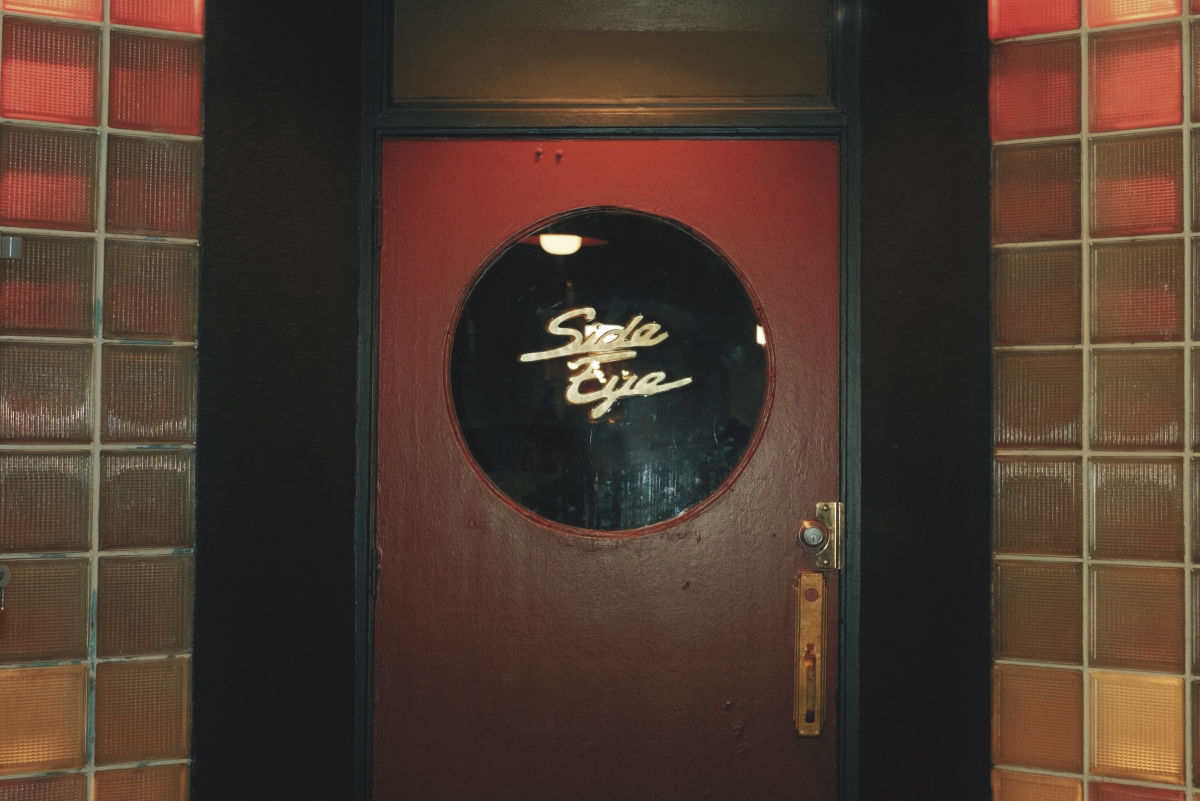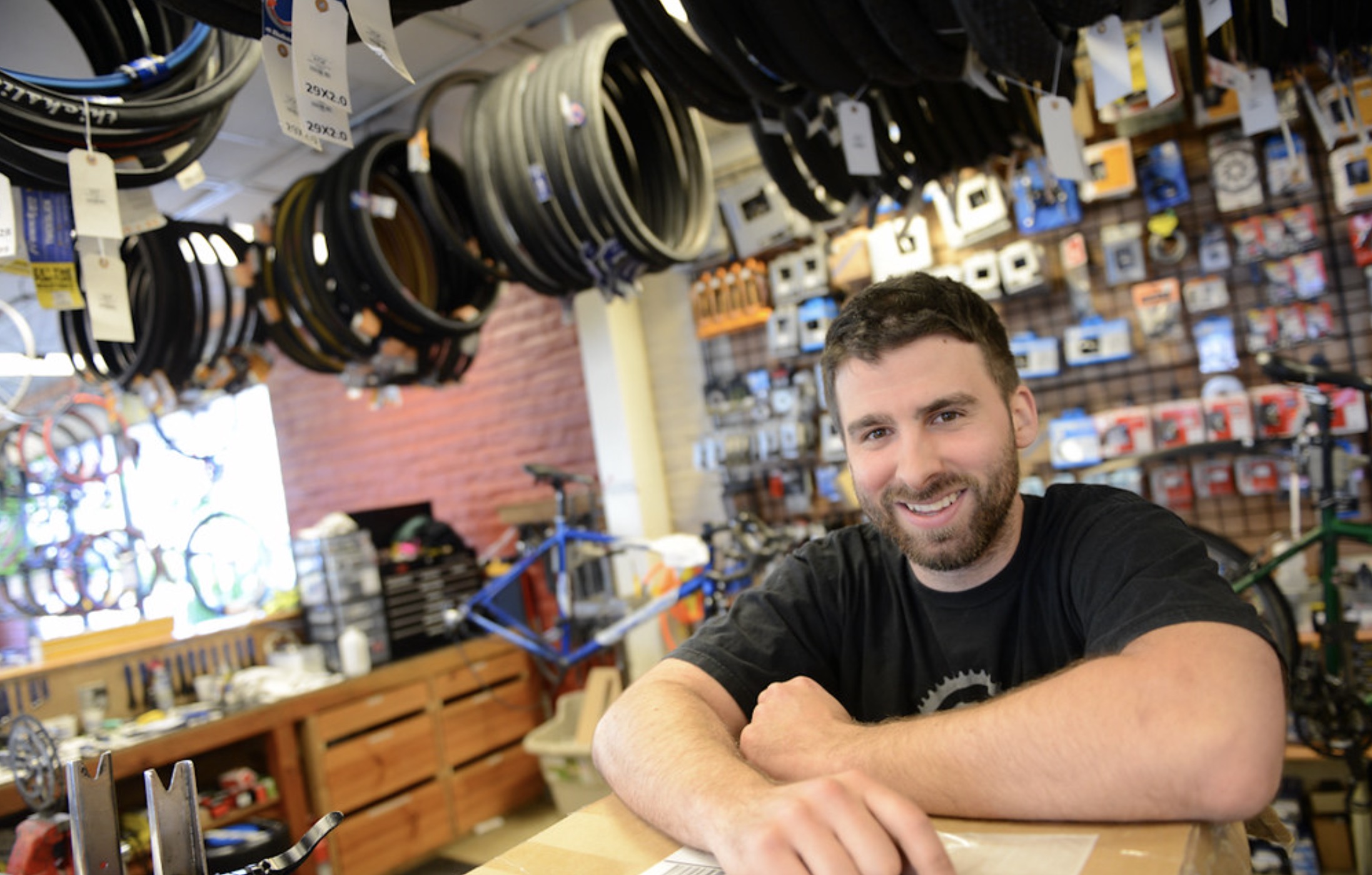Side Eye in NW Portland Is a Casual Neighborhood Bar from a Serious Team

Side Eye serves lowbrow bar food with fine-dining execution.
The bloomin’ onion at Side Eye is a pale flower of deep-fried indulgence. Like its Outback Steakhouse inspiration, the onion gets scored with a deep asterisk of slices, allowing it to “bloom” as it hits the fryer, each individual petal gilded in hot oil. In its center, a pool of melted gruyere and caramelized onion—blended to a silky texture—evokes French onion soup, a cheeky nod to the chef’s background. It’s a dish that could theoretically end up at either a dive bar or an American neo bistro like Canard, but doesn’t quite fit either category. It’s classic Portland high-low: unfussy, but completely dialed in. It’s cerebral in its execution, but it doesn’t take a lot of thought to enjoy it.
The newest addition to the built-in bar crawl on NW 21st Avenue, Side Eye pays homage to the low-key neighborhood watering holes of the past—despite its impressive pedigree. In the kitchen, chef John Denison has (mostly) set aside the modernist French cooking that wowed diners at St. Jack and his neo-Parisian pop-up Le Clown. Instead of pâté en croûte or oeuf en gelée, he tops hot dogs with bacon and drapes molten cheese over waffle fries to pair with the cashew-infused Rob Roys of another Portland legend, award-winning bartender and Palomar owner Ricky Gomez.

The glass block windows that flanked the doors of Muu Muu’s are still here.
Side Eye opened on New Year’s Day in the space previously home to Muu Muu’s, adjacent to Cinema 21. Though a popular destination for post-movie beers, Muu Muu’s mainly operated as a neighborhood haunt, attracting local regulars with its relaxed charm for years before closing in 2020. In late 2024, after two predecessors came and went, Gomez teamed up with Quinn Matthewstearn and David Hall—owners of sports bar Jackie’s and ’70s-themed bar Sugar Hill—to snatch up the space. Instead of channeling the pseudo-clubby atmosphere of the duo’s businesses, or the tropical vibes of Palomar, the team built an approachable, laidback bar with a roster of classic cocktails, time-tested drinking snacks, and an aesthetic that maintains the friendly vibe of its former occupant. Muu Muu’s fans will recognize the glass bricks built into the hardwood booths and red plaid banquettes; they’re the same kind that have flanked the front doors for years.
Neighborhood bars are like dive bars: tricky to define but easy to recognize. Also like a dive bar, they operate as the backbone of the city’s bar scene, providing a relatively affordable, relatively approachable place to imbibe and socialize. For many, they’ve replaced the twentieth century’s “bar and grill” as reliable stalwarts for weeknight dinners, date nights, and even brunch. But it’s rare for them to open under a team from places like St. Jack or New Orleans’ famed Cure cocktail bar.

Fried chicken sandwiches, salads, and the remains of a bloomin’ onion.
It’s not just the reliability of the bar for the public; it goes both ways. Gomez and Denison were attracted to the idea of a business that would maintain a steady stream of regulars. “Le Clown has been amazing,” Denison says, “But it’s much more up and down, more of a special destination, not a place where you go two or three times a week.” Gomez added that Palomar struggles in the off-season, with a lot of “peaks and valleys” that a neighborhood bar could better avoid. That consistent business and casual bar vibe allows the team to have a little fun with the menu — say, riffing on chain signatures or pairing kettle chips with prosciutto. “I’ve always had a concept for classic French food mixed with fast food,” Denison says. “It’s the perfect time to throw that together.”
And the food goes beyond bistro–meets–drive-through; Denison reaches into his own personal history for inspiration as well. The fried chicken sandwich nods to Denison’s Appalachian family and Nashville hot chicken institution Hattie B’s, with a commanding spice and thick, crunchy dredge. But I’m pretty sure Hattie B’s doesn’t splash red wine into its hot sauce for a touch of sweetness and acidity, or melt potato flakes into aioli to give it more body and creaminess, balancing the heat of the chicken and salty smokiness of the bacon. It’s a little cheffy, a little home-cooking-hack, a little lowbrow, a little elevated. It speaks to the ease and playfulness that Denison gets to indulge in here.

Like its food, Side Eye’s cocktails are a blend of retro charm and new-school technique.
Gomez is having fun, too, building retro tavern drinks with a bit of modern ingenuity. Take, for example, the Rob Roy: A Manhattan made with scotch instead of bourbon or rye, it’s a drink rarely found on cocktail bar menus today. Gomez punches it up, infusing Johnnie Walker with toasted cashews before mixing it with Italian vermouth, chocolate bitters, and a bit of Kummel for notes of caraway and cumin. The result is unmistakably a Rob Roy, but better balanced between sweetness and smoke, with a gentle nuttiness and touch of cocoa for good measure. It’s at once nostalgic and novel. Same goes for the house old-fashioned, which pays homage to the much-maligned Wisconsin variation made with brandy and muddled orange and cherry. Gomez swaps the fruit for orange and cherry liqueurs and splits the base between bourbon and brandy, serving it over a big, clear ice cube for a touch of class. It’s something cocktail snobs and Midwestern transplants can equally enjoy. “It’s about giving the neighborhood what it wants,” Gomez says. And in the heart of Northwest Portland, where the St. Jacks and G-Loves coexist with the Joe’s Cellars and Nob Hill Bar and Grills, Side Eye seems primed to pull it off.
Share this content:















Post Comment